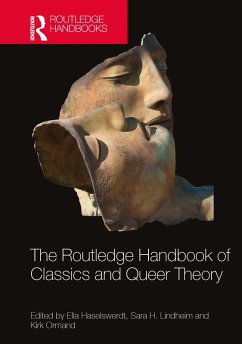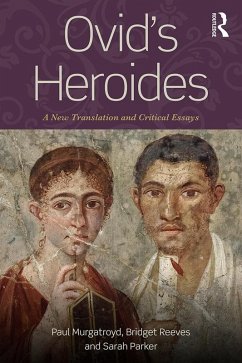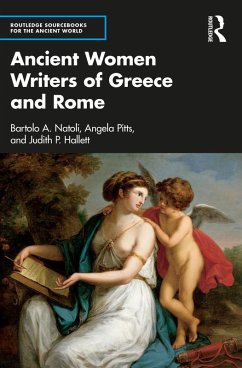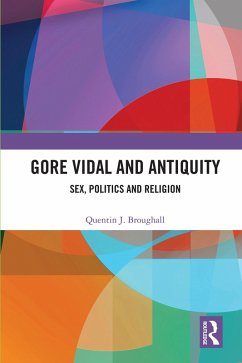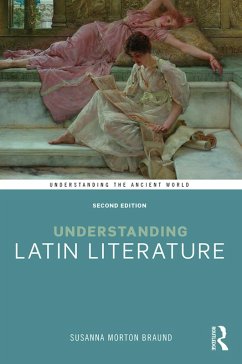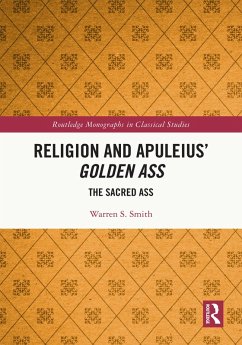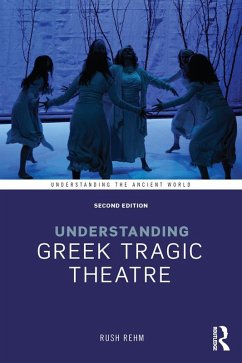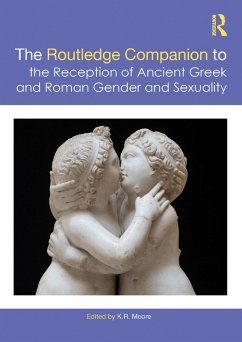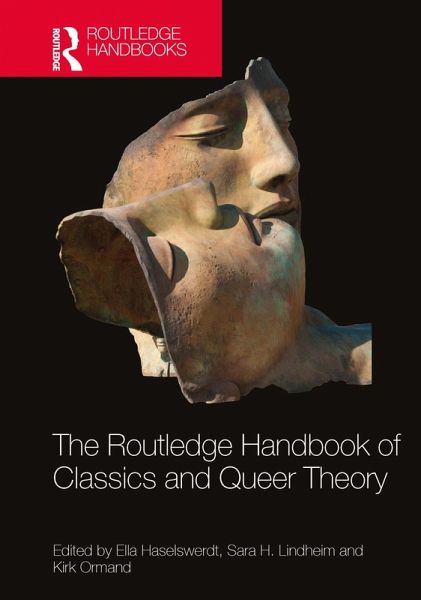
The Routledge Handbook of Classics and Queer Theory (eBook, ePUB)

PAYBACK Punkte
24 °P sammeln!
New directions in queer theory continue to trouble the boundaries of both queerness and the classical, leading to an explosion of new work in the vast-and increasingly uncharted-intersection between these disciplines, which this interdisciplinary volume seeks to explore.This handbook convenes an international group of experts who work on the classical world and queer theory. The discipline of Classics has been involved with, and implicated in, queer theory from the start. By placing front and center the rejection of heteronormativity, queer theory has provided Classics with a powerful tool for...
New directions in queer theory continue to trouble the boundaries of both queerness and the classical, leading to an explosion of new work in the vast-and increasingly uncharted-intersection between these disciplines, which this interdisciplinary volume seeks to explore.
This handbook convenes an international group of experts who work on the classical world and queer theory. The discipline of Classics has been involved with, and implicated in, queer theory from the start. By placing front and center the rejection of heteronormativity, queer theory has provided Classics with a powerful tool for analyzing non-normative sexual and gender relations in the ancient West, while Classics offers queer theory ancient material (such as literature, visual arts, and social practices) that challenges a wide range of modern normative categories. The collection demonstrates the vitality of this particular moment in queer classical studies, featuring an expansive array of methodologies applied to the interdisciplinary field of Classics. Embracing the indeterminacy that lies at the core of queer studies, the essays in this volume are organized not by chronology or genre, but rather by overlapping categories under the following rubrics: queer subjectivities, queer times and places, queer kinships, queer receptions, and ancient pasts/queer futures.
The Routledge Handbook of Classics and Queer Theory offers an invaluable collection for anyone working on queer theory, especially as it applies to premodern periods; it will also be of interest to scholars engaging with the history of sexuality, both in the ancient world and more broadly.
This handbook convenes an international group of experts who work on the classical world and queer theory. The discipline of Classics has been involved with, and implicated in, queer theory from the start. By placing front and center the rejection of heteronormativity, queer theory has provided Classics with a powerful tool for analyzing non-normative sexual and gender relations in the ancient West, while Classics offers queer theory ancient material (such as literature, visual arts, and social practices) that challenges a wide range of modern normative categories. The collection demonstrates the vitality of this particular moment in queer classical studies, featuring an expansive array of methodologies applied to the interdisciplinary field of Classics. Embracing the indeterminacy that lies at the core of queer studies, the essays in this volume are organized not by chronology or genre, but rather by overlapping categories under the following rubrics: queer subjectivities, queer times and places, queer kinships, queer receptions, and ancient pasts/queer futures.
The Routledge Handbook of Classics and Queer Theory offers an invaluable collection for anyone working on queer theory, especially as it applies to premodern periods; it will also be of interest to scholars engaging with the history of sexuality, both in the ancient world and more broadly.
Dieser Download kann aus rechtlichen Gründen nur mit Rechnungsadresse in A, B, BG, CY, CZ, D, DK, EW, E, FIN, F, GR, HR, H, IRL, I, LT, L, LR, M, NL, PL, P, R, S, SLO, SK ausgeliefert werden.




